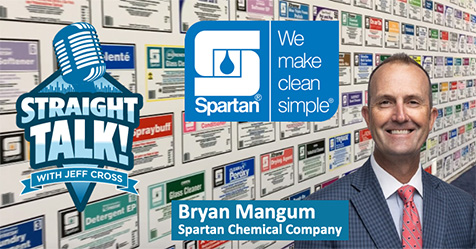Coronavirus Survives on Surfaces From a Few Hours to a Few Days
New study pinpoints virus survival on various surfaces
As professional cleaners continue to battle the SARS-CoV-2 virus that causes COVID-19, additional guidance on how long the virus can live on a variety of surfaces is helpful. Cleaners already knew the virus was long-living, but a new study, which hasn’t been published yet, pinpoints the virus lifespan on various surfaces from plastic and metal to cardboard, National Public Radio reports.
The World Health Organization (WHO) had previously estimated the survival rate from a few hours to a few days based on research from previous coronaviruses However, federal scientists wanted to test the actual virus causing the current pandemic. Researchers at the Rocky Mountain Laboratories in Montana, which is part of the U.S. National Institutes of Health, conducted a series of experiments by picking up the SARS-CoV-2 virus from contaminated areas and putting it in cell cultures from different surfaces. Then they documented whether the virus could infect the cells in the petri dish.
Researchers found the virus can survive on hard surfaces such as plastic and stainless steel for up to 72 hours and on cardboard for up to 24 hours. However, the virus remained viable on copper for only about four hours.
Scientists still don’t know about the virus’s lifespan on soft surfaces such as clothing or carpeting. However, based on previous research, they believe flat and hard surfaces are more likely to retain viruses than cloth or rough surfaces. They also believe food is not a major risk as most infection from the new coronavirus starts with the respiratory system, not the digestive tract. Rather than actual food, the biggest germ carriers would be utensils, plates, and cups handled by a large number of people in a cafeteria setting.
Washing your hands frequently, wearing personal protective equipment (PPE), and wiping down shared surfaces with EPA-registered disinfectants (List N: Disinfectants for Use Against SARS-CoV-2) continues to be the best advice.
Keep up with the latest news, resources and best practices to stop the spread of the SARS-CoV-2 virus such as tip sheets on appropriate PPE and disinfectants.

